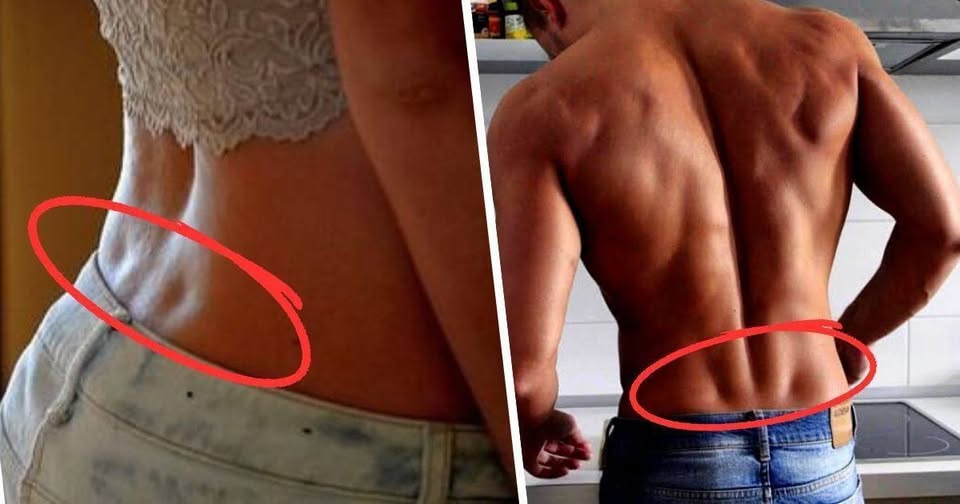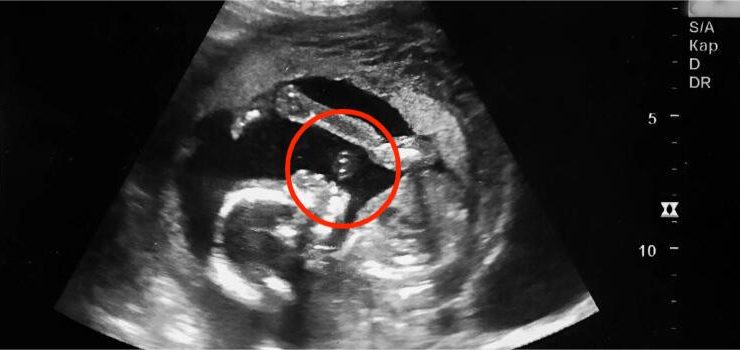Have you ever noticed two small indentations on your lower back, just above your buttocks? These little dips, commonly referred to as “Venus holes,” might seem like just a quirky feature, but they actually carry some interesting significance. Found more frequently in women, they’re also sometimes called “dimples of Venus,” while in men, they are often referred to as “Apollo holes.”

Though they might appear to be just another unique trait of the human body, these natural indentations are much more than mere aesthetics. Scientifically, these dimples are caused by a small ligament situated between the skin and a part of the pelvic bone known as the posterior superior iliac spine. This anatomical location is where the pelvic bones join and create a slight hollow, particularly because there isn’t much muscle covering that area. This creates a visible indentation or “hole” that becomes more noticeable in certain body types, especially in those with lower levels of body fat. The name “Venus” is symbolic, stemming from the Roman goddess of love and beauty, highlighting the cultural association of these dimples with attractiveness and sensuality.
Despite common belief, you can’t develop Venus holes through exercise or training. You’re either born with them or not. Genetics play the primary role in whether or not a person has these dimples, so if you don’t have them, there’s nothing you can do to form them. However, for those who do have them, these small back features can carry some positive implications. Medical experts often associate visible Venus holes with good circulation and a healthy body. Because the area they’re located in has fewer fat deposits and is closer to certain blood vessels, the presence of Venus holes can suggest efficient blood flow in that region
That improved circulation can contribute to a number of health benefits, including overall cardiovascular health. There’s also a popular belief that Venus holes are linked to heightened sexual responsiveness. Some studies and anecdotal evidence suggest that individuals with these dimples might experience more frequent or more intense orgasms. This is attributed to their proximity to nerves and blood vessels that play a role in sexual function.
Because of this, people with Venus or Apollo holes are often said to have a higher sex drive or find intimacy more pleasurable. Furthermore, Venus holes may also provide some insights into body composition. If these dimples are clearly visible, it’s often a sign that the individual has a relatively low body fat percentage, which could indicate they are within a healthy weight range. In this way, Venus holes can reflect not just aesthetic beauty but also aspects of a person’s health and lifestyle. Of course, it’s important not to overemphasize physical traits when it comes to evaluating health. Not having Venus holes doesn’t mean someone is unhealthy or lacking in any way—everyone’s body is different, and health is determined by a wide variety of factors. However, for those who do have them, Venus holes can be seen as a little anatomical bonus. They not only hint at a person’s genetic structure but might also offer some surprising benefits. In the end, these small indentations are a reminder of just how fascinating and varied the human body can be. Whether you have them or not, Venus and Apollo holes are just one more example of the tiny, unique features that make us who we are. So the next time you catch a glimpse of those dimples in the mirror, know that they might say more about you than you think—not just in terms of beauty, but also health, energy, and maybe even intimacy.





